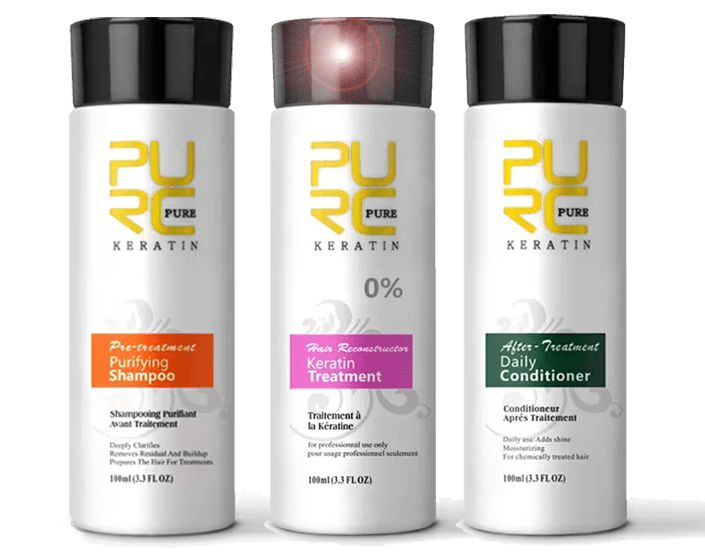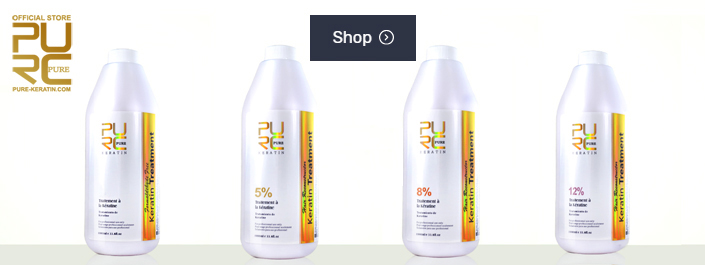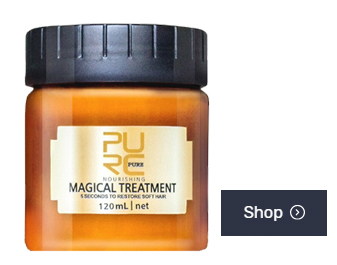Keratin Treatment for Thin Hair
PURE KERATIN on 29th May 2024
Keratin Treatment for Thin Hair
Understanding Keratin Treatment
What is Keratin?
Keratin is a fibrous protein naturally found in hair, nails, and skin. It serves as a protective layer, providing strength and structure to these tissues.
How Keratin Affects Hair Health?
The presence of keratin in hair contributes to its strength, elasticity, and overall health. However, factors like heat styling, chemical treatments, and environmental damage can deplete keratin levels, leading to weak, brittle hair.
Why Choose Keratin Treatment for Thin Hair?
Keratin treatment offers a solution for those struggling with thin or damaged hair. By infusing keratin back into the hair shaft, this treatment can strengthen and revitalize strands, resulting in thicker, healthier-looking hair.
Benefits of Keratin Treatment
Strengthens and Thickens Hair
Keratin treatment penetrates the hair cuticle, fortifying each strand from within. This helps to increase hair density and thickness, making it an ideal choice for individuals with thinning hair.
Repairs Damage and Split Ends
Over time, hair can become damaged due to heat styling, chemical processing, and environmental factors. Keratin treatment works to repair this damage, smoothing the hair cuticle and sealing split ends for a healthier appearance.
Adds Shine and Manageability
One of the noticeable benefits of keratin treatment is the enhancement of hair's shine and manageability. By smoothing the hair cuticle, this treatment reduces frizz and makes hair easier to style and maintain.
How Keratin Treatment Works
Pre-Treatment Preparation
Before undergoing keratin treatment, it's important to prepare the hair by washing it with a clarifying shampoo to remove any product buildup or impurities.
Application Process
During the treatment, a stylist applies a keratin solution to clean, dry hair, ensuring thorough saturation. The hair is then blow-dried and flat-ironed to seal in the keratin and activate its smoothing properties.
Post-Treatment Care
After the treatment, it's essential to avoid washing or styling the hair for a period specified by the stylist, typically 48 to 72 hours. This allows the keratin to fully bond with the hair for optimal results.
Keratin Treatment vs. Other Options
Comparing with Chemical Treatments
Unlike traditional chemical treatments like relaxers or perms, which can damage the hair's structure, keratin treatment works to improve hair health while providing smoothing and straightening benefits.
Differences from Hair Extensions
While hair extensions can add volume and length to thin hair, keratin treatment addresses the underlying issue by strengthening and thickening existing hair strands.
Maintenance
Compared to Hair Masks While hair masks offer temporary conditioning benefits, keratin treatment provides long-lasting results that can withstand regular washing and styling.
Who Can Benefit from Keratin Treatment?
Suitable Hair Types
Keratin treatment is suitable for a wide range of hair types, including curly, wavy, and straight hair. However, individuals with severely damaged or over-processed hair may not achieve optimal results.
Addressing Thin Hair Concerns
For individuals with thin or fine hair, keratin treatment can help improve hair density and volume, providing a fuller appearance.
Safe for Colored or Chemically Treated Hair
Keratin treatment is generally safe for colored or chemically treated hair, but it's essential to consult with a stylist to ensure compatibility with specific treatments.
Risks and Side Effects
Potential Allergic Reactions
Some individuals may experience allergic reactions to the chemicals used in keratin treatment, so it's essential to undergo a patch test before treatment.
Risks for Pregnant or Nursing Individuals
Pregnant or nursing individuals should consult with a healthcare professional before undergoing keratin treatment, as the safety of certain chemicals used in the process is not well understood.
Long-Term Effects on Hair Health
While keratin treatment can provide immediate benefits, long-term use may lead to hair breakage or damage if not properly maintained.
Cost Considerations
Factors Affecting Treatment Cost The cost of keratin treatment can vary depending on factors such as hair length, thickness, and the salon's location. Additional services, such as deep conditioning or styling, may also impact the overall cost.
Cost-Benefit Analysis While keratin treatment may require an upfront investment, many individuals find that the long-term benefits, such as reduced styling time and improved hair health, justify the expense.
Finding the Right Salon or Technician
Researching Credentials and Reviews When choosing a salon or technician for keratin treatment, it's essential to research their credentials, certifications, and customer reviews to ensure quality and safety.
Consultation Process Before undergoing keratin treatment, schedule a consultation with the stylist to discuss your hair goals, assess the condition of your hair, and address any concerns or questions you may have.
Questions to Ask Before Treatment
- How long does keratin treatment last?
- Can I color my hair after keratin treatment?
- Is keratin treatment safe for all hair types?
- Will keratin treatment make my hair straight?
- How often can I get keratin treatments?
- Can I swim after keratin treatment?
Maintaining Results Long-Term
Recommended Hair Care Products To maintain the results of keratin treatment, it's essential to use sulfate-free shampoos and conditioners specifically formulated for keratin-treated hair.
Touch-Up Treatments and Frequency Depending on your hair type and lifestyle, touch-up treatments may be necessary every three to six months to maintain smoothness and manageability.
Lifestyle Adjustments for Hair Health In addition to regular salon visits, adopting a healthy hair care routine, including minimizing heat styling and protecting hair from environmental damage, can help preserve the results of keratin treatment.
Conclusion
Keratin treatment offers a transformative solution for individuals with thin or damaged hair, providing strength, thickness, and manageability. By understanding the benefits, risks, and maintenance considerations associated with this treatment, you can make an informed decision about whether it's right for you.



















